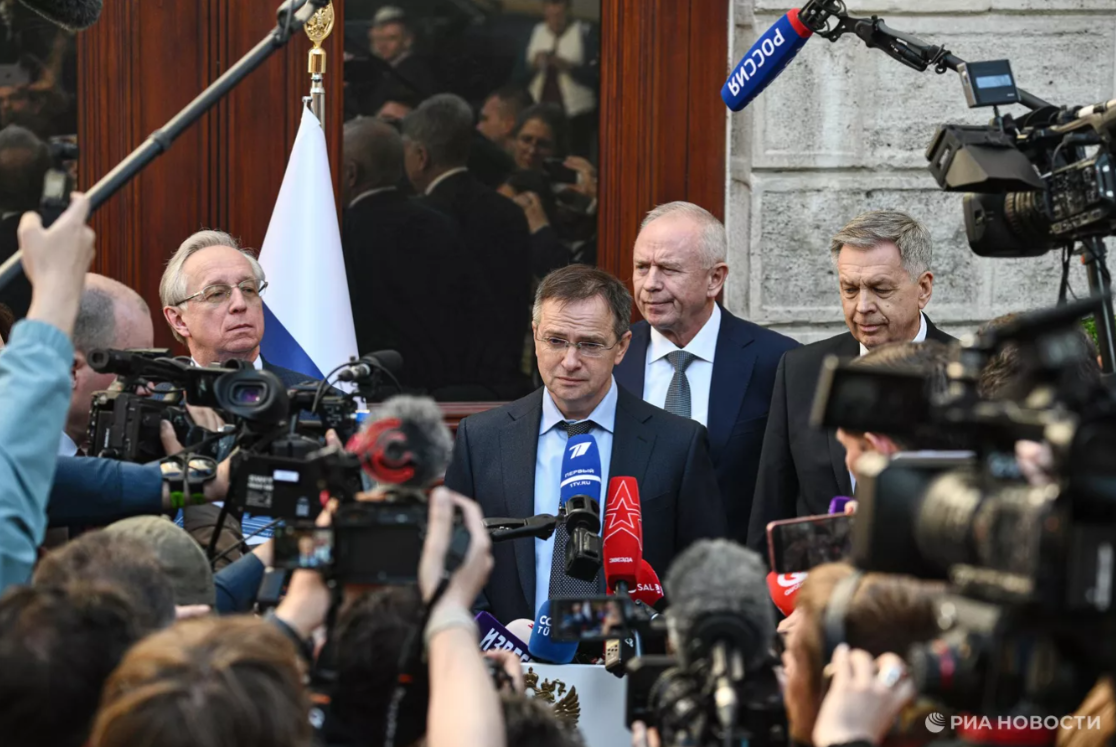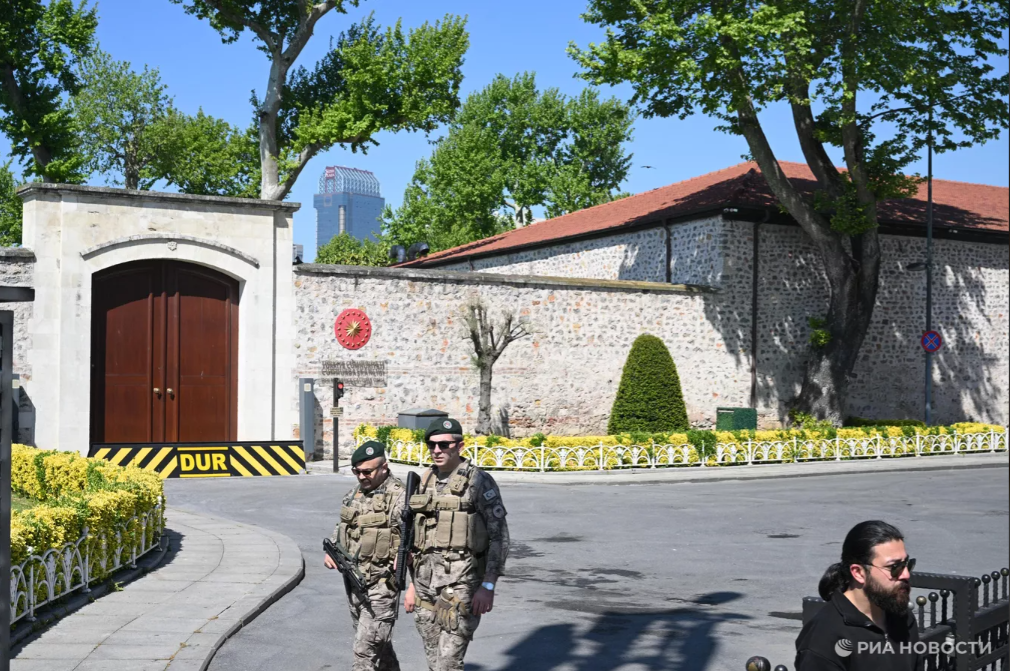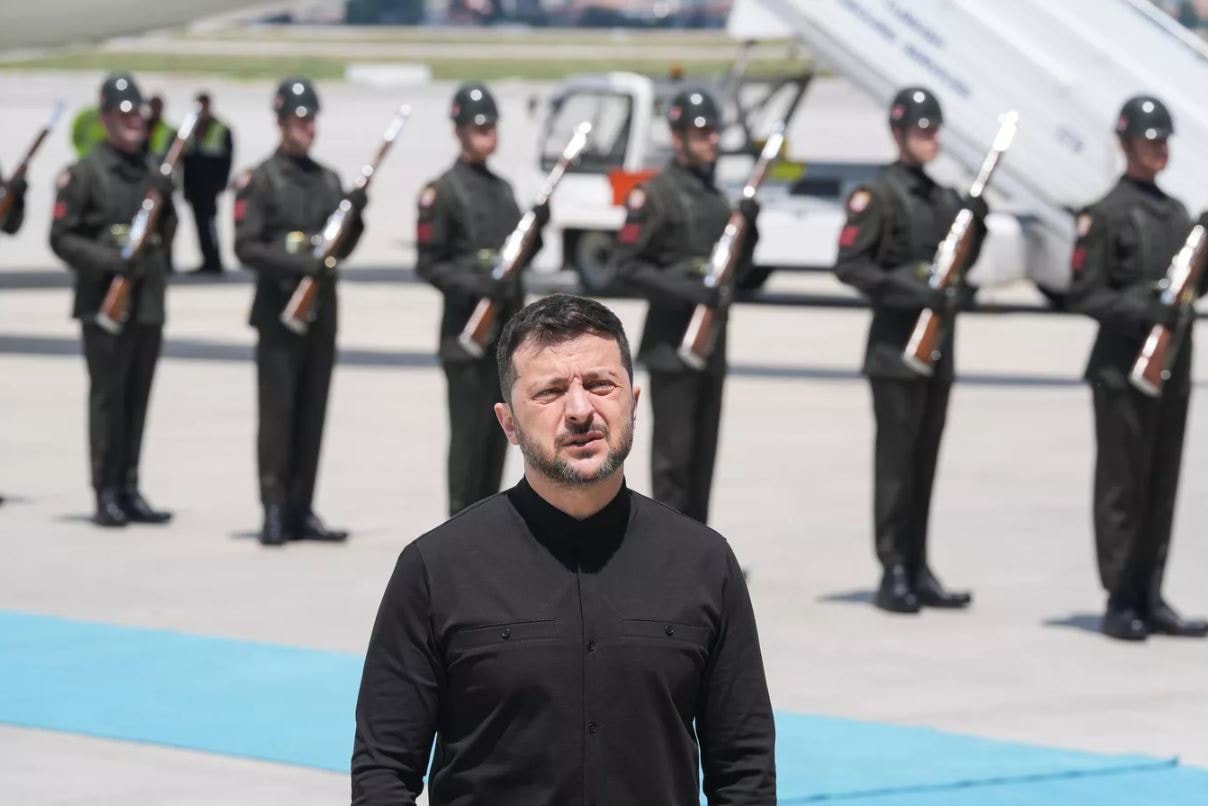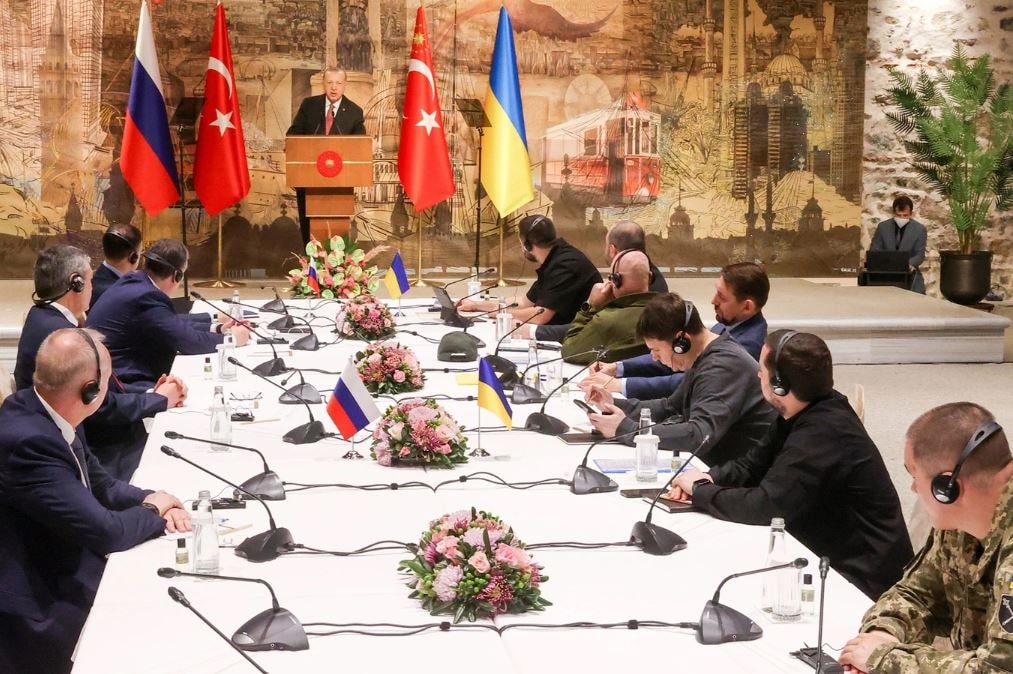How are the Istanbul 2025 negotiations different from 2022?
As in 2022, the Russian delegation to the Istanbul talks was led by a Russian presidential aide. While this caused some discomfort on the Ukrainian side, Medinsky’s continued role is a sign of consistent political stance from the Kremlin.
Composition of the Russian delegation – a calculated decision
In the context of complex political-military negotiations, it is completely reasonable to choose a figure with direct experience in previous rounds of negotiations. The list of delegations was officially approved by President Vladimir Putin on the evening of May 14, immediately after the internal meeting ended. The next morning (May 15), the Russian delegation immediately left for Istanbul and received instructions from President Putin that negotiations would only be conducted within the established framework.
Speaking to reporters in Türkiye on May 15, Mr. Medinsky declared that Russia is ready to negotiate and work seriously within the framework of this dialogue.

Previously, there were many speculations that the Russian delegation this time would be led by Foreign Minister Sergey Lavrov or foreign policy advisor Yuri Ushakov. However, reality has refuted that prediction. President Putin's choice of Medinsky - who does not hold a position in the Foreign Ministry - sent a signal: Russia wants to tightly control the content of the negotiations according to the direction from the political top, instead of letting pure diplomacy dominate the process.
The delegation also showed a multi-sectoral mix with the participation of key figures from the fields of diplomacy, defense and intelligence. Among them were Deputy Foreign Minister Mikhail Galuzin, Director of the Main Directorate of Military Intelligence Igor Kostyukov, Deputy Defense Minister Alexander Fomin – people who play important roles in Russia's security policy making.
In addition, a number of high-ranking experts and technical officials were also present in the delegation: First Deputy Director of the General Staff Information Department Alexander Zorin, Ms. Elena Podobreevskaya from the Directorate for Humanitarian Policy, Mr. Alexey Polischuk – Head of the 2nd Department in charge of the CIS countries of the Ministry of Foreign Affairs, along with Mr. Viktor Shevtsov from the Directorate for International Military Cooperation. This diversity of expertise reflects Russia's intention to thoroughly prepare for all negotiation scenarios, from political, military to humanitarian and international cooperation.
The Russian President's continued appointment of Vladimir Medinsky as head of the negotiating delegation is not a random choice, but a clear political message: Russia sees this round of dialogue not as a new beginning, but as a direct continuation of the negotiation process that took place in Istanbul in 2022. Along with Medinsky, Deputy Defense Minister Alexander Fomin, who participated in the previous round of negotiations, is also present in this delegation. This is a testament to Moscow's steadfast approach.

The reaction from the Ukrainian side was not unexpected – they expressed clear dissatisfaction with the composition of the Russian delegation. President Volodymyr Zelensky even personally traveled to Türkiye and affirmed that he would only negotiate directly with his Russian counterpart. He did not accept communication through a presidential aide, because he considered it incompatible with his role and position.
However, Mr. Zelensky himself is stuck in a dilemma. On the one hand, he wants to negotiate with a low-level Russian official himself. On the other hand, he cannot delegate authority to anyone else, because the Ukrainian government has previously issued a decree prohibiting negotiations with Russia. In Mr. Zelensky’s understanding, this decree by default only allows him, not any official, to contact the Russian side. But this is Kiev’s internal matter and not Russia’s responsibility.
Furthermore, questions need to be raised about the legitimacy of Mr. Zelensky’s leadership, as his presidential term effectively ended last year without any elections being held. Meanwhile, the principles of international diplomacy show that each level of negotiation requires a correspondence in the level of representation, not necessarily a head of state talking to a head of state.
Speaking to Izvestia on May 15, international political analyst Alexey Naumov said that Russia chose the current composition to focus on specific technical agreements – a prerequisite before a summit can be held. Moscow understands that serious negotiations can only be carried out without being dominated by third parties, especially European countries such as France, Germany or Britain – countries that often seek to impose their presence in negotiations, but in reality often exacerbate divisions.
Russia's focus at Istanbul 2025
The focus of Russia is not on protocol or symbolism, but on substance. Moscow has made it clear that the talks are a natural continuation of what took place in Istanbul in 2022 – not just because of the location, but because it was there that the two sides made their first real progress. A draft text of the agreement was created, reflecting many points that are consistent with Russia’s interests and position.

Analyst Naumov recalled that in March 2022 in Istanbul, the Ukrainian delegation signed the terms related to demilitarization, neutrality and a number of other important elements. However, shortly after, President Zelensky, under pressure from British Prime Minister Boris Johnson, abandoned this document. This is considered the turning point that caused the negotiation process to collapse.
Of course, the situation is very different today than it was three years ago. “Realities on the ground,” as Russian officials call them, have changed. The Donetsk, Lugansk, Kherson, and Zaporozhye regions are now part of Russia—a factor that makes the current negotiating conditions much more unfavorable for Ukraine than they were in 2022.
In addition to the political factor, the military context also plays a decisive role. In 2022, according to leaked sources, Ukraine agreed to limit its armed forces, including the number of armored vehicles, aircraft and troops. However, with major changes in technology and tactics, especially the rise of attack UAVs, the military provisions clearly need to be updated. This explains why this time, Russia has included the head of the General Department of Military Intelligence, Igor Kostyukov, in the negotiations, to ensure that the draft provisions are consistent with the reality on the battlefield.

According to Russian military expert Fyodor Lukyanov in the Russian Perspectives newspaper on May 16, in the past 3 years, the Russian military, not diplomats, is the force that has really shaped the “new reality”. Therefore, he affirmed: The core factor lies not only in territorial disputes, but also in the issue of the overall military-political balance and how the two sides understand the concept of security in a new order.
In essence, Medinsky’s main task at the new round of talks in Istanbul was nothing more than to formally present the fundamental changes in the situation on the ground that have taken place over the past three years – the “new realities” that Russia believes Ukraine must acknowledge. This was no longer an open dialogue between equals, but a message to Kiev that the old order no longer exists.
Notably, as of the morning of May 15, it was still unclear who would be the head of the Ukrainian delegation, as well as the official composition of this country’s delegation. But for Moscow, that does not mean much. Whoever it is, the Ukrainian side – if they actually attend – will have to directly listen to the clear and strong views of the Russian side.
President of the Eurasian Analysis Club Nikita Mendkovich told the newspaper Goc Ngon on May 16: “We do not expect any breakthroughs at the current stage. Russia is skeptical about the possibility of actually reaching a consensus from Kiev, especially when the balance on the battlefield has not yet tilted in a direction that would force them to change their stance.”
Russia’s current stance can be summed up in two words: firm and realistic. Russia is no longer interested in symbolic political signals or false goodwill. Now, as the political world often says, the ball is in Kiev’s court. The Zelensky government will have to decide: does it really want to reach a peace agreement on new terms, or continue to prolong the conflict in the illusion that the situation can be reversed?
If Kiev chooses the second path – “continuing to fight” instead of negotiating, then, as observers emphasize, Ukraine is simply postponing a further meeting… where the terms offered will be much harsher for the Ukrainian side.


